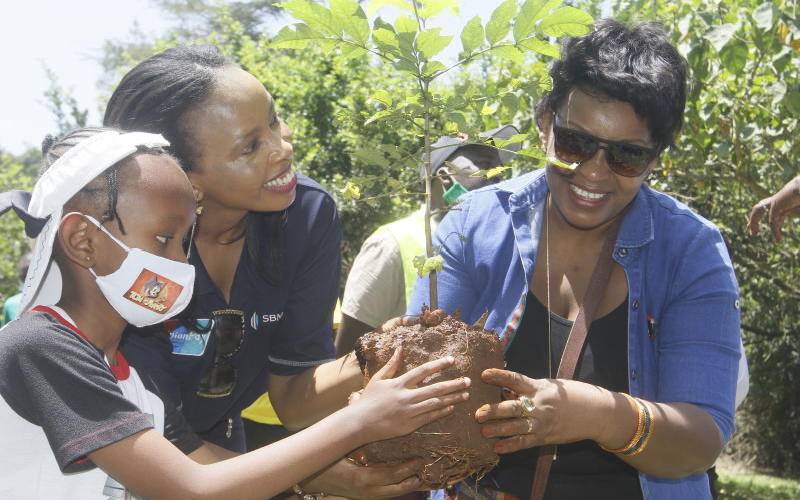
Kenya Association of Women in Tourism(KAWT) partner members SBM Bank Head of Women and Youth Banking Margaret Kimani(left) and ITC She Trades National Coordinator Kenya Phyllis Mwangi and 6 year- old Zaria Wangari ready to plant a tree seedling at the Karura Forest to mark the beginning of 10 years Anniversary celebrations.[ Jenipher Wachie, Standard]
During the Easter weekend, I visited sections of Isiolo and Garissa counties to understand why the conflict there has become the order of the day between the Borana and the Somali communities that have a lot in common. They share boundaries, pasture, water, and depend on each other for livelihood.